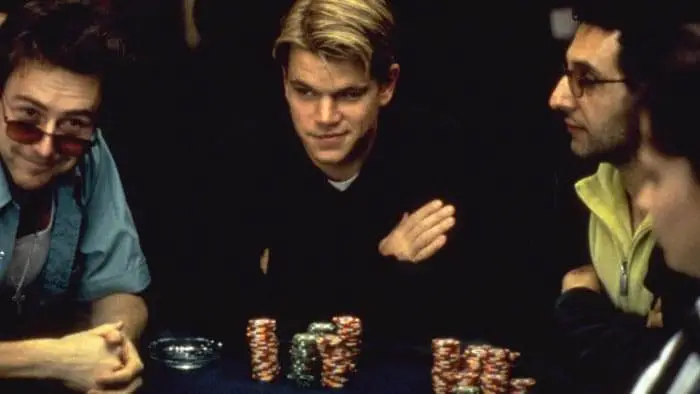
Exploring the World of Casino-Themed Movies and Books
Casino movies tend to focus on the glamour and glitz of gambling while some films explore its darker underside.
Martin Scorsese’s Casino is an outstanding example. Featuring mobster Sam Rothstein (Robert De Niro) and partner Nicky Santoro based on real life characters, the movie remains very accurate to its story.
Martin Scorsese’s “Casino” (1973)
Casino, from director Quentin Tarantino, stands out as being a remarkable cinematic achievement that succeeds where earlier works by him failed. Casino explores mob-run Las Vegas but focuses on one mobster trying to prevent disaster from unfolding – from its tacky 1970s period decor and lifelike fallen angel statue to Ace’s order that the kitchen staff place “exactly the same amount of blueberries in every muffin”. It is packed with storytelling imagery ranging from tacky 1970s period decor and life-sized fallen angel statue. It truly possesses epic proportions.
A riveting depiction of gambling culture and its associated violence. Yet this film also tells an emotional tale, featuring love, tragedy, mishaps and exuberance; featuring an excellent performance by Sharon Stone herself. Dynamic camerawork and expert storytelling combine to immerse viewers in this complex yet exciting world; furthermore Scorsese’s constant camera movements and overhead placement (ideal for narratives about surveillance) ensure it doesn’t become dull over time.
“Runner Runner” (2014)
Director Brad Furman (The Lincoln Lawyer) and screenwriters Brian Koppelman and David Levien do an admirable job with this film about high-stakes online gambling, yet Runner Runner lacks substance. There’s little in terms of character development or intrigue to elevate its content beyond dull pulpiness.
Justin Timberlake stars as Princeton graduate student Richie Furst, traveling to Costa Rica in order to confront online gambling mogul Ivan Block and settle a score with him. Drawn to his promise of wealth but fearing arrest by the FBI, Furst becomes seduced by Block and seduces by him before finally meeting up with them again on his return home. Although there are some engaging scenes within Runner Runner, its momentum eventually runs out before reaching any meaningful climax; 20th Century Fox’s DVD provides an excellent 1080p transfer along with loads of extra features – it still offers plenty of entertaining entertainment worth seeing for!
“Bringing Down The House” (1998)
Croupier was first released back in the ’90s but still feels relevant today. It follows a struggling writer who takes a job as a croupier in London and becomes embroiled in its seedy gambling scene, led by Clive Owen’s character – all while exploring its darker aspects with style and grace.
This film’s depiction of poker and blackjack offers an unexpected perspective on casino culture than its competition, diving deeper into addiction issues and the effects of gambling addiction on an individual’s life.
The movie offers something novel in that its narrative examines gambling from an intimate and friendly angle, rather than with tension-laden scenes typical for most films on this subject. This approach makes the movie engaging to watch; especially its powerful yet emotionally fulfilling climax which explores risks inherent to gambling.
“The Gambler” (1952)
Film has long captured the seedy underworlds of gambling and the mob, providing numerous great directors with ample material for powerful films based in these realms.
Dane Clark made several films for British studio Hammer Films during the 1950s, often low-budget noirish films with American stars that helped sell tickets in America.
Here, Clark plays Jim Forster, a gambler with aspirations of joining the British Establishment. He owns nightclubs and even races horses but must fight his hardened palooka nature and resist the urge to punch people out. After breaking up with his nightclub singer girlfriend he attempts to clean up his act but faces difficulty due to mobsters trying to take over his business – it’s an interesting but ultimately tragic tale – exactly what Hammer was going for with this story!





